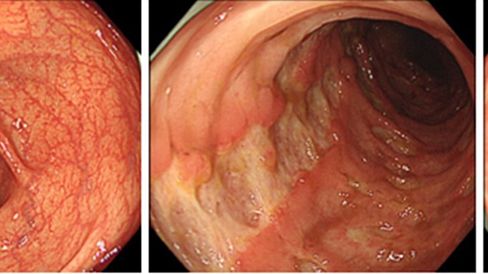
Press release -
Elucidation of pathogenesis of ulcerative colitis and Crohn’s disease: Leading to new treatment methods for refractory inflammatory bowel diseases -- Kindai University
A research team led by Tomohiro Watanabe (associated professor at Department of Gastroenterology and Hepatology, Kindai University Faculty of Medicine, Osakasayama-city, Osaka) and Yasuhiro Masuta (2nd year of doctoral program in gastrointestinal disease department, Kindai University Graduate School of Medical Sciences) has elucidated a part of pathogenesis of inflammatory bowel diseases including ulcerative colitis and Crohn's disease. The research findings may lead us to explore the development of new treatments for inflammatory bowel disease, which is sometimes refractory to present treatment.
This study was published online in the "International Immunology", a peer-reviewed medical journal published by the Japanese Society for Immunology, on Thursday, September 29, 2022 (10:00 a.m., Japan time).

(Middle) Large intestinal mucosa of a typical patient with Crohn's disease
(Right) Large intestinal mucosa of a typical patient with ulcerative colitis
1. Key points
- The team discovered that type I interferon, one of the inflammatory cytokines, is involved in exacerbation of inflammatory bowel disease.
- An enzyme that inhibits the activity of type I interferons has been identified as a novel therapeutic target for inflammatory bowel disease.
- This research offers insights into the development of new treatments for intractable inflammatory bowel disease.
2. Background
Inflammatory bowel disease (IBD) is a chronic inflammatory disorder of the gastrointestinal tract that causes diarrhea, bloody stools, and abdominal pain. IBD can be categorized in two different types: Crohn's disease and ulcerative colitis. Currently in Japan, the number of patients with ulcerative colitis is estimated to be about 200,000, and Crohn's disease is estimated to be about 45,000, and the number of patients is increasing year by year. Ulcerative colitis causes chronic inflammation continuously from the rectum to large intestine, while Crohn's disease causes chronic inflammatory condition throughout the gastrointestinal tract from the mouth to the anus.
Both Crohn's disease and ulcerative colitis occurs when immune cells in the intestinal tract excessively respond to intestinal bacteria which the gut immune system normally tolerates, and inflammatory cytokines are produced. With the development of drugs that neutralize inflammatory cytokines, it has become possible to control the diseases to some extent, but only about 50% of patients are relieved with these drugs, and many patients still suffer from symptoms. Long-term IBD increases the risk of developing colorectal cancer. Given these circumstances, it is highly expected for the development of new treatments based on the elucidation of the pathogenesis mechanisms of IBD.
3. Overview
Using mouse models of IBD, the research team verified that type I interferon (IFN), one of the inflammatory cytokines, is associated with the development of IBD. They also found that the activation of NOD2, a protein that was found to act as a brake on inflammatory cytokines in Watanabe’s research team, almost completely suppressed the exacerbation of IBD. Validation of this mechanism was conducted, and it was clarified that activated NOD2 suppresses the production of type I IFN by increasing activity of a specific enzyme called DUBA. In addition, intestinal tissues from patients with ulcerative colitis and Crohn's disease were analyzed. In the intestinal mucosa of Crohn's disease patients, it was revealed that the expression of DUBA increased and the production of type I IFN decreased when inflammation subsided with treatment. This research identified the enzyme that inhibits the activity of type I IFNs as a new therapeutic target. The findings are expected to lead us to the development of new treatments for intractable inflammatory bowel disease.
4. About Publication
Journal name: International Immunology(Impact factor: 5.071@2021)
Research paper title: Activation of Nucleotide-Binding Oligomerization Domain 2 by Muramyl Dipeptide Negatively Regulates Toll-Like Receptor 9-Mediated Colonic Inflammation Through the Induction of Deubiquitinating Enzyme A Expression
Authors: Yasuhiro Masuta1, Kosuke Minaga1, Masayuki Kurimoto1, Ikue Sekai1, Akane Hara1, Naoya Omaru1, Natsuki Okai1, Yasuo Otsuka 1, Ryutaro Takada1, Tomoe Yoshikawa1, Sho Masaki1, Kamata Ken1, Hajime Honjo1, Yasuyuki Arai2, Kouhei Yamashita 2, Masatoshi Kudo1, Tomohiro Watanabe1*
*Corresponding author
Affiliation: 1 Department of Gastroenterology and Hepatology, Kindai University Faculty of Medicine
2 Department of Hematology and Oncology, Kyoto University Graduate School of Medicine

